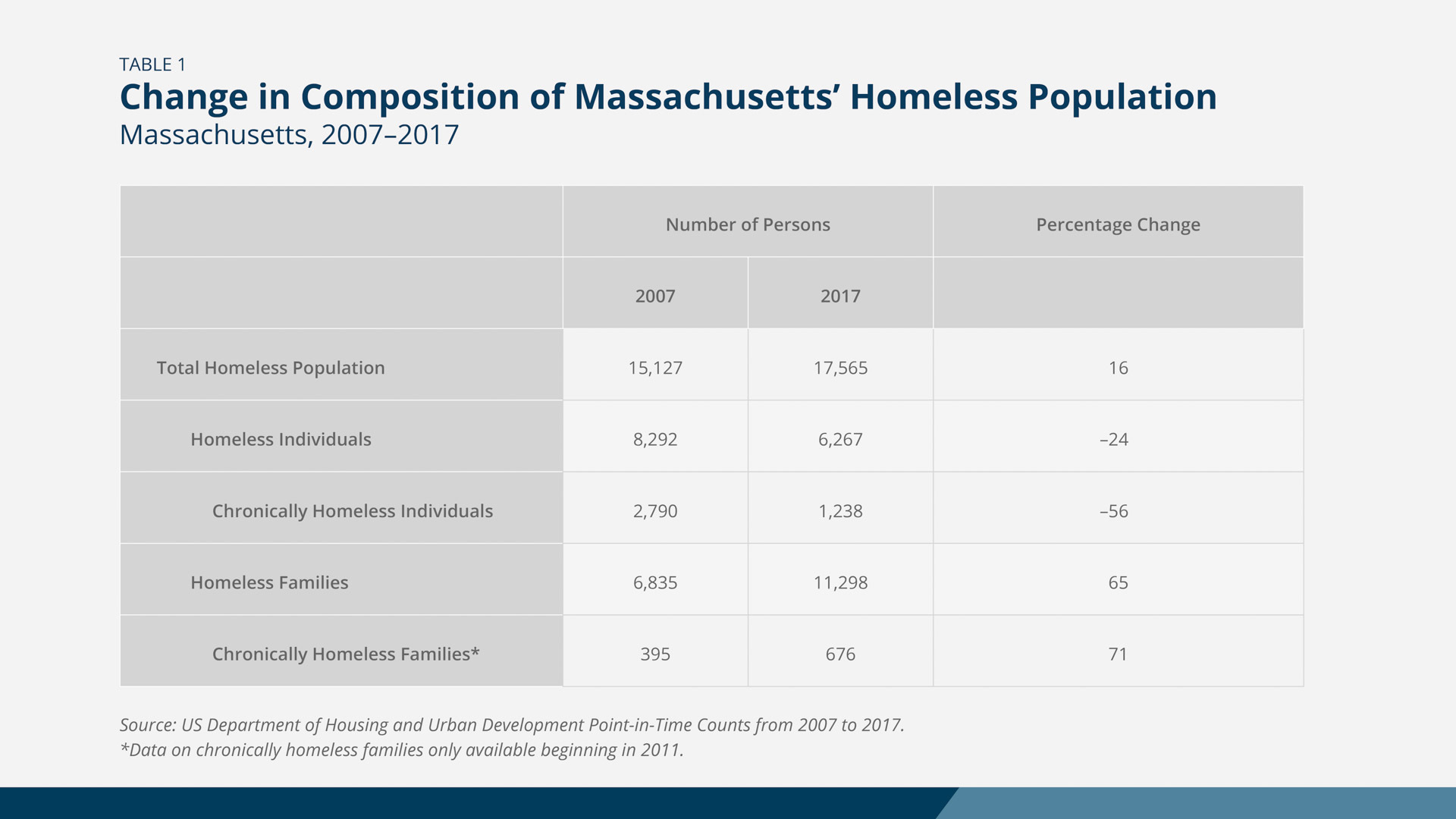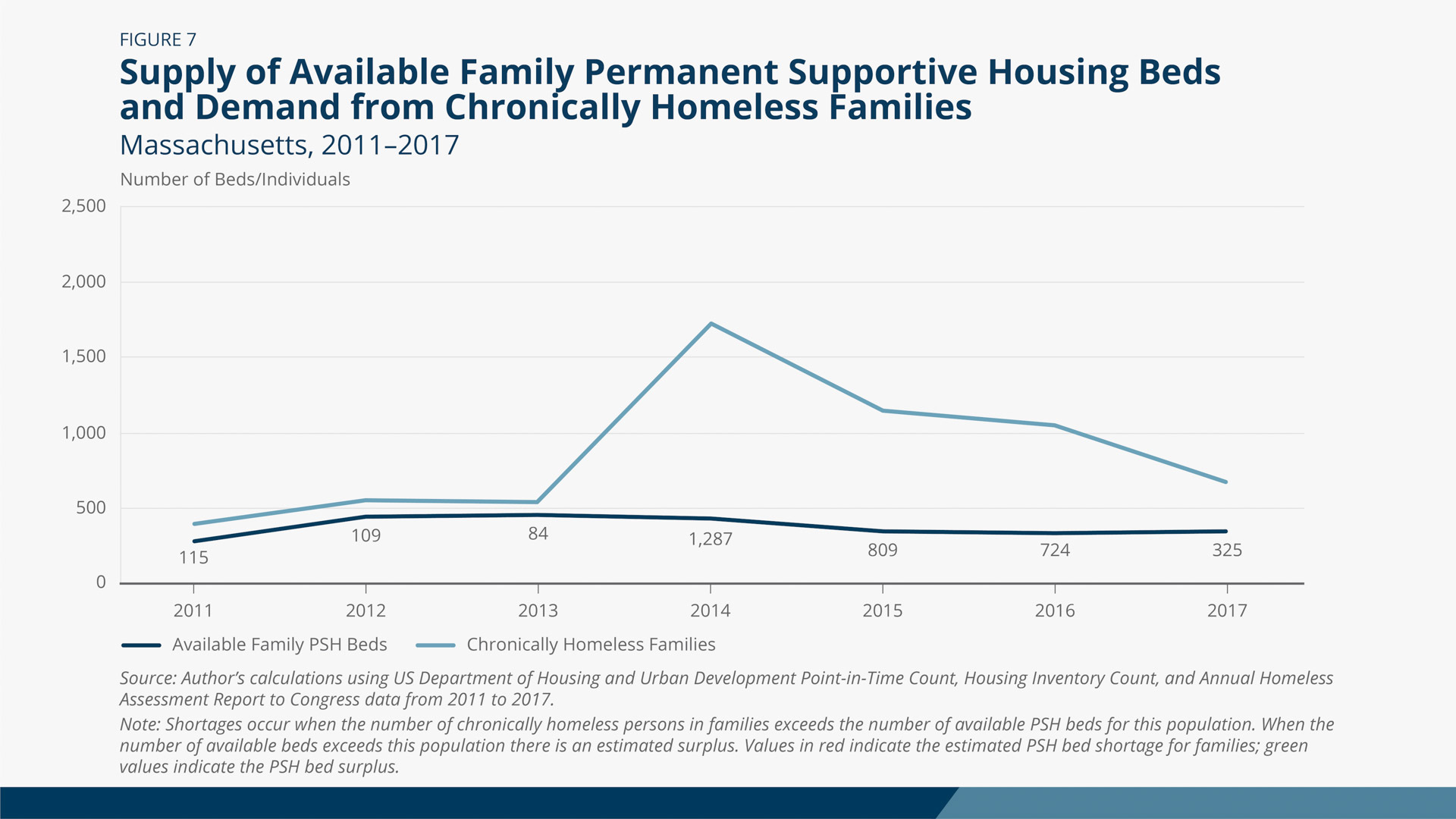The Supply of Permanent Supportive Housing in Massachusetts: Comparing Availability to the Chronic Homeless Population 
Permanent supportive housing (PSH) has become an important resource for Massachusetts service providers working to address chronic homelessness in the state. Nationally, and in the Commonwealth, the number of PSH beds available for homeless individuals and families now exceeds the amount of emergency shelter beds and other, non-permanent, housing options. While PSH is acknowledged as an important tool, there has been little research into the inventory level needed to effectively house the state’s current chronic homeless population, and what, if any, local shortages exist. This report uses publicly available inventory and homeless population count data to estimate the number of PSH beds needed to effectively house the chronically homeless individuals and families living in Massachusetts. In addition, this report looks at the Continuum of Care service regions to examine how differences in homeless populations affect local shortages of PSH within the state.
The report finds that Massachusetts has made marked progress toward increasing the state’s PSH inventory, with at least one PSH bed available per chronically homeless individual in 2016 and 2017. There remains, however, a statewide shortage in PSH beds for chronically homeless families. The situation may vary considerably across localities, with some areas experiencing PSH shortages while neighboring areas have surpluses. Finally, using incomplete data on planned additions to the PSH inventory shows that less progress has being made at alleviating these two differences in supply. There are still more individual beds than family beds being added, with inventory additions for both types of PSH decreasing, and only a handful of Continuums of Care planning new PSH beds for the coming years.

 Exhibits
Exhibits





